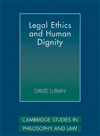Back on August 7, we asked Professor David Luban, one of the nation’s leading legal ethicists, to take a look at the motion which had been filed for the recusal of Judge Fuller in the Siegelman case, the Government’s response, and Judge Fuller’s ruling and then also to consider a number of further facts unearthed by our investigative series. The result appeared here. Since that time the Weeks affidavit, which evidently had been ordered placed under seal by Judge Fuller in an effort to prevent it from becoming public knowledge, has become known. I therefore asked Professor Luban to supplement his prior interview with a review and comment on the allegations contained in the Weeks affidavit.

7. Professor Luban, since our initial interview, an affidavit has surfaced in which a Missouri lawyer lodges, under oath and with substantial corroboration, a series of extremely serious accusations against Judge Fuller. In particular, the charges include perjury, criminal conspiracy, a criminal attempt to defraud the Retirement System of Alabama, misuse of office as a District Attorney, and an obstruction of his background check by the FBI in connection with the review of his appointment by President Bush to the bench. The affiant charges that he lied under oath in connection with the RSA claim, and notes that a former judge who succeeded him as district attorney and all of the trustees of the RSA shared that assessment. This affidavit was submitted to the Public Integrity Section, the same entity which was at that time prosecuting the Siegelman case before Judge Fuller, and which aggressively (and with extraordinarily sharp and contentious language) opposed the motion for Judge Fuller’s recusal. That motion was based on Fuller’s business dealings with the government through his closely-held company, Doss Aviation. It appears that Siegelman’s counsel were unaware of the Weeks’s affidavit. Indeed, the affidavit appears to have been placed under seal by order of Judge Fuller so as to block the public from gaining knowledge of it. Do these facts affect your analysis of whether Judge Fuller should have heard the case? Should Public Integrity have informed the parties of the fact that it had charges against Fuller before it?
As you say, the affidavit levels serious charges against Judge Fuller, and the lawyer who wrote it offers evidence to back them up. It’s written as a request to federal officials to investigate those charges. To be perfectly fair, I have to observe that the affidavit is very much an advocacy document, and a lot of it represents the lawyer’s opinions and speculations – as the author himself makes clear. It would be a bad mistake, and very unfair to Judge Fuller, to assume that these charges are true. But there certainly is enough there to warrant an investigation, if only to clear the judge’s name.
In answering your previous questions, I’ve already said that Judge Fuller should have disqualified himself from the Siegelman case. This affidavit doesn’t change that diagnosis. Does it make it stronger? Not at first glance, because the new charges in the affidavit don’t have anything to do with the Siegelman case.
But at second glance, I’m not so sure. The affidavit quotes a 2002 Alabama newspaper story saying that Judge Gary McAliley applied to Siegelman for the DA’s job that Fuller vacated – and he did so because of “questionable practices” in the DA’s office under Fuller. (¶ 63 of the affidavit.) Siegelman appointed McAliley to the DA’s job. That certainly gives Fuller a reason to be angry at Siegelman – even more so when Fuller received the affidavit and read in ¶ 74 that McAliley had started to investigate him and thought Fuller had lied. The possibility of personal anger against Siegelman on Fuller’s part is just the kind of thing that the judicial disqualification law tries to guard against. You simply can’t preside over a criminal case against somebody who appointed a DA to investigate you!
What’s even more startling is that the lawyer sent this affidavit to the Justice Department’s Public Integrity Section in 2003 – so that at the moment that PIN was signing papers in the Siegelman case attesting to Fuller’s judicial rectitude, it had in its possession a 39-page detailed accusation against Fuller that gives ample grounds for PIN to investigate him. And, as I suggested, once PIN took a public position in the Siegelman case about Judge Fuller’s rectitude, it became harder for PIN to do its job of investigating Siegelman in the other matter.
And, what’s worse, one of the accusations in the affidavit is of exactly the same kind of misbehavior that Siegelman was protesting: refusing to disqualify himself from hearing a case when a reasonable person would question his impartiality in that case. Take a look at paragraphs 95 and 96. The Retirement System of Alabama – the RSA – turned down Fuller’s request for a $70,000 raise for one of his employees, and in the course of doing so questioned the integrity of Fuller’s reasons for making the request. In an entirely different matter, RSA is suing Enron, and Judge Fuller was hearing the case. RSA apparently moved to have him disqualify himself on grounds of possible bias against RSA, and Judge Fuller refused. That’s just what happened in the Siegelman case.
My question is this: Having this affidavit in their possession, with this particular accusation in it, why did PIN go out of their way to support Judge Fuller’s decision not to disqualify himself in the Siegelman case? At the very least, it shows remarkably bad judgment on the part of PIN.
I want to emphasize that I don’t have any idea whether the charges in the affidavit are true. The affidavit is very one-sided, and its author puts the most sinister interpretation on all the facts he cites. Maybe he’s right, maybe he isn’t. My point isn’t about the new charges, but about the way that both Judge Fuller and PIN responded to the affidavit – or rather, failed to respond to it.

David J. Luban is the author of a number of important books on law and legal ethics, including, most recently, Legal Ethics and Human Dignity published by Cambridge University Press, which can be ordered here.
“If the rule of law is a necessary condition for human rights and human dignity, lawyers in all fields will play a vital role in securing these goods. And the ethical character of the legal profession – the commitment of lawyers to the rule of law and the human dignity it helps secure – will determine whether the rule of law is anything more than a slogan.” David Luban in Legal Ethics and Human Dignity (2007).


